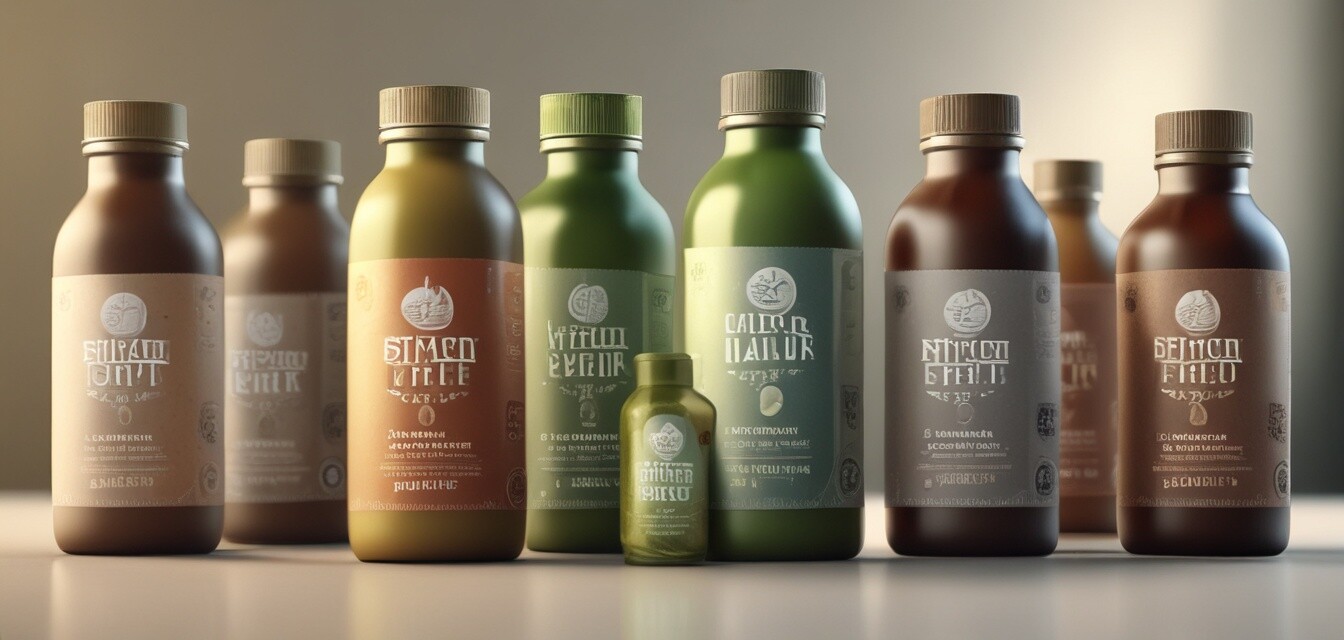
Tips for reading supplement labels with sustainability in mind
- Understanding label claims is crucial for sustainability.
- Look for certifications that signal ethical sourcing and production.
- Assess the ingredient list for sustainability indicators.
- Be aware of packaging waste and material recyclability.
- Supporting brands with transparent practices promotes sustainability.
When it comes to health and wellness, dietary supplements play an important role for many individuals. However, with a growing concern for the environment, it's essential to balance personal health with sustainability. Reading supplement labels carefully can help you make informed choices about the products you consume. This article will guide you through the process, highlighting what to look for on labels to ensure that your selections are ethical and sustainable.
Why is understanding supplement labels essential?
Understanding what is in your supplements is just as important as recognizing their potential benefits. Supplement labels can reveal a lot about sourcing practices, ingredient quality, and sustainability. Here’s why it's essential:
- Safety: Knowing the ingredients ensures you minimize exposure to harmful substances.
- Sustainability: A transparent label can indicate if a product is eco-friendly.
- Ethical standards: Understanding sourcing practices helps you support ethical brands.
What to look for on supplement labels
When examining a supplement's label, consider the following key elements:
1. Ingredient list
The ingredient list is the first place to start. Look for the following points:
- Natural ingredients: Opt for products with recognizable, minimally processed ingredients.
- Non-GMO: Seek out non-genetically modified organisms to support sustainable agriculture.
- Organic certification: Organic supplements often adhere to stricter environmental standards.
2. Certifications and claims
Certifications can provide further assurance of a product's sustainability. Here are some common certifications to look for:
| Certification | Meaning |
|---|---|
| USDA Organic | Indicates products are grown without synthetic pesticides or fertilizers. |
| Non-GMO Project Verified | Signifies that the product does not contain genetically modified organisms. |
| Fair Trade Certified | Ensures equitable trade practices, often supporting small farmers. |
| Vegan or Vegetarian | A label indicating the absence of animal products, promoting plant-based choices. |
3. Eco-labels
Look for eco-labels that indicate sustainable practices in the production of the supplement:
- Products with eco-labels often support biodiversity conservation.
- Brands that use renewable resources typically score high on sustainability metrics.
4. Packaging considerations
Packaging plays a critical role in sustainability. Observe these aspects:
- Recyclability: Ensure the packaging materials can be recycled in your area.
- Minimalism: Brands that minimize excess packaging waste are usually more eco-friendly.
5. Brand transparency
Finally, brand transparency is essential when evaluating a supplement’s sustainability:
- Research brands that openly share information about their sourcing and manufacturing processes.
- Brands committed to sustainability often communicate their values and eco initiatives clearly.
Tips for making sustainable supplement choices
Practical strategies to consider
- Choose products from brands with clear sustainability missions.
- Look for bulk purchasing options to reduce packaging waste.
- Support local brands to decrease transportation-related emissions.
- Educate yourself about the environmental impact of each ingredient.
Conclusion
Being an informed consumer also means taking sustainability into account when choosing dietary supplements. By understanding how to read supplement labels, assessing ingredient quality, and prioritizing brands with ethical practices, you can make choices that benefit not just your health, but the health of our planet as well. Remember that every decision you make contributes to a larger movement towards sustainable living.
Further reading
For more insights on sustainable supplement practices, check our other articles: